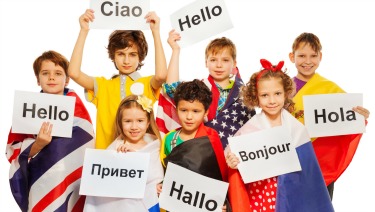The difference between reading books and reading online

With the explosion of online reading, researchers, educators and parents around the world have become increasingly interested in how it compares to reading printed material. Early scientific research appeared inconclusive or contradictory. Subjectively, fans of e-readers (such as Kindle), loved the lightweight convenience and typically cheaper pricing for books. At the same time, diehard bookworms continued to maintain that ‘you can’t beat turning the pages of a book’, because they loved the smell and feel of a ‘real’ book.
As education involves increasing amounts of ‘screen time’ and homework requires more online research, concerns are being raised about a possible reduction in reading skills, particularly for longer texts, such as books.
Print provides better reading comprehension
A relatively early 2012 Norwegian study[1] involved two randomised groups of 10th graders. One group read two 1400–2000 word texts in print and the other read the same texts in pdf format on a computer. The study concluded that “students who read texts in print scored significantly better on the reading comprehension test than students who read the texts digitally.” But it’s not necessarily quite so straightforward.
It can depend on the length of the text
In a 2017 interview[2], Anne Mangen from the Reading Centre at the University of Stavanger pointed out that a lot of factors come into play, including the reader’s proficiency, the type of material and the kind of screen being used. She pointed out that one of the most influential factors appears to be the length of the text. If it’s long and requires careful reading, then people of all ages often prefer a printed book. But this preference is different for shorter texts.
Reading time, type of material and year of the study also count
In 2018, a scientific analysis of studies from 2000 to 2017 was published in the Education Research Review.[3] It found three main influences on the difference in reading comprehension between printed and digital media. The first was the allowed reading timeframe, with paper-based reading having a greater advantage when there was a limited reading time, as opposed to self-paced reading. The second influence was the type of reading material, with paper-based reading having an advantage for informational or mixed informational and narrative texts, but no advantage for purely narrative text. The third influence that emerged was the year of the research, with paper-based reading showing an increasing benefit over the years. This final point was not what many people anticipated. They thought that as people became more used to digital media, the lag behind printed media reading comprehension would reduce. It has been suggested that people have increasingly learned to scan and bounce around online content, rather than reading mainly from start to end as you do with a book.
However, the differences are much less with e-readers
Another study[4], published in 2019 in Frontiers of Psychology journal, compared aspects of reading a printed book with reading on a Kindle. While there was little difference in most of the word, sentence and factual recall tests, two main variations did occur. These were related to remembering where in the book something happened and being able to accurately relate the order of events in the plot. In both of these areas, the printed book readers performed better, particularly in linear stories that didn’t involve ‘flashbacks’. The study’s authors suggest this may be due to the different ‘sensorimotor’ aspects (feel and operation) of the two media. In other words, the paper book provides more physical placeholders, such as page turning and easy observation of progress through the story, which may help trigger related mental processes.
[1] https://www.sciencedirect.com/science/article/pii/S0883035512001127
[2] https://phys.org/news/2017-09-differently-paper-screen.html
[3] https://www.sciencedirect.com/science/article/pii/S1747938X18300101



